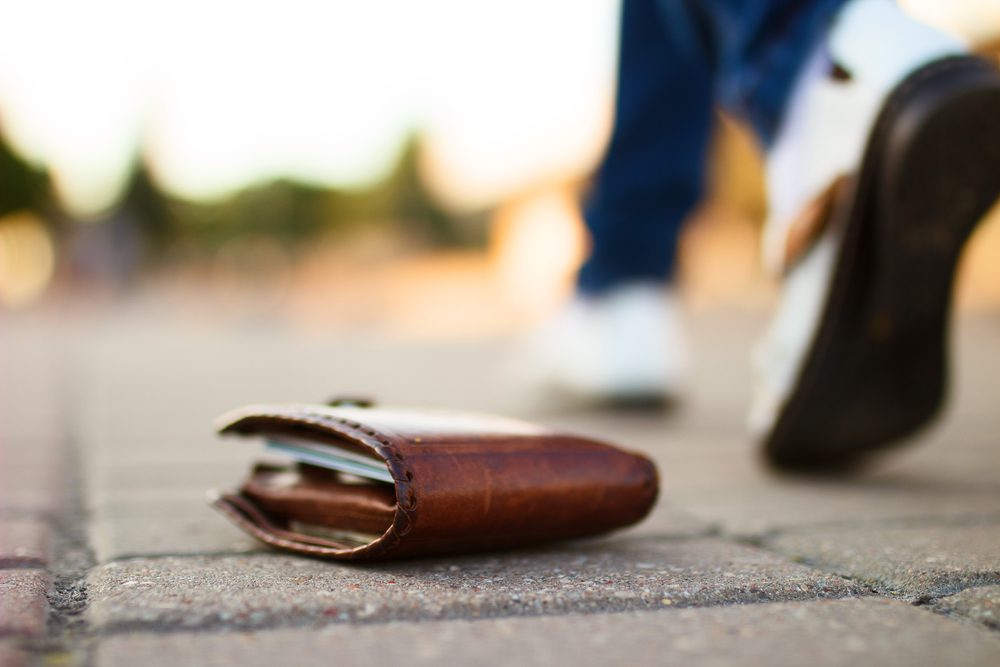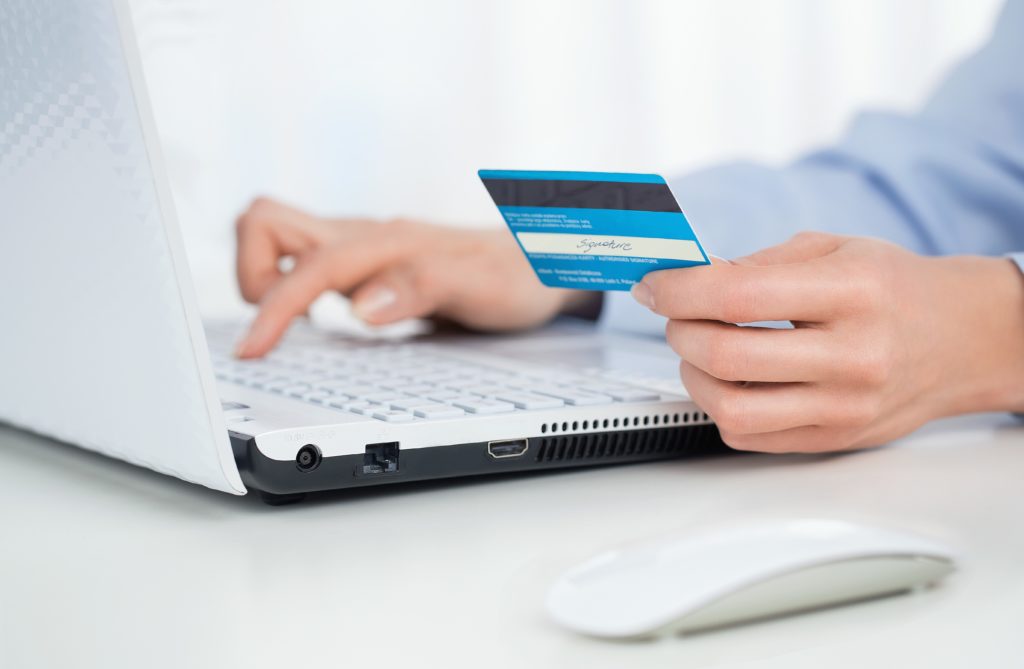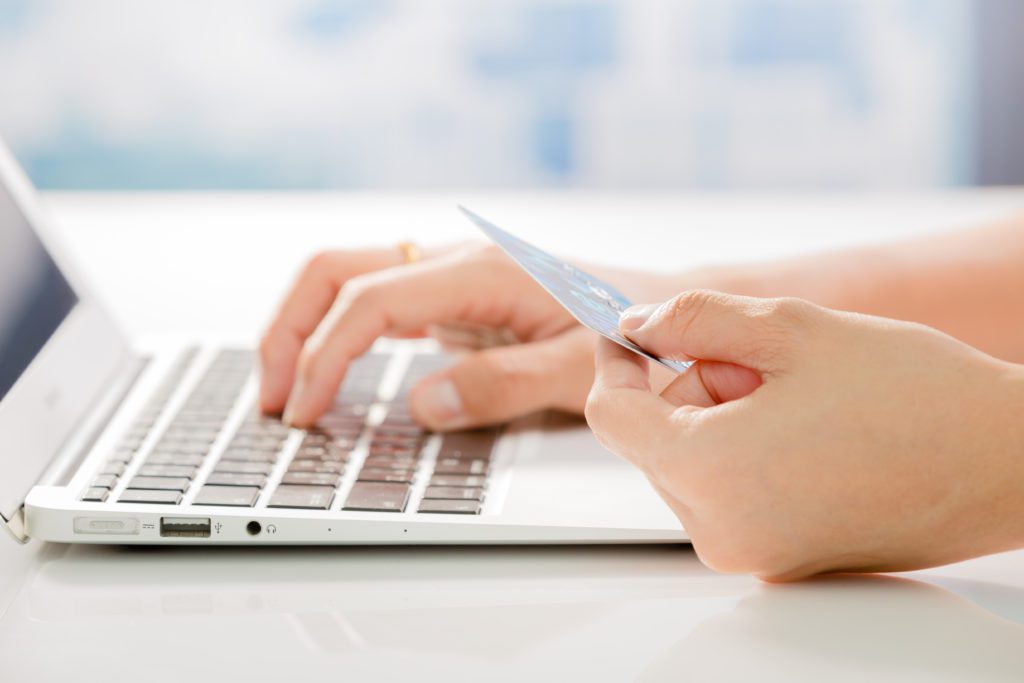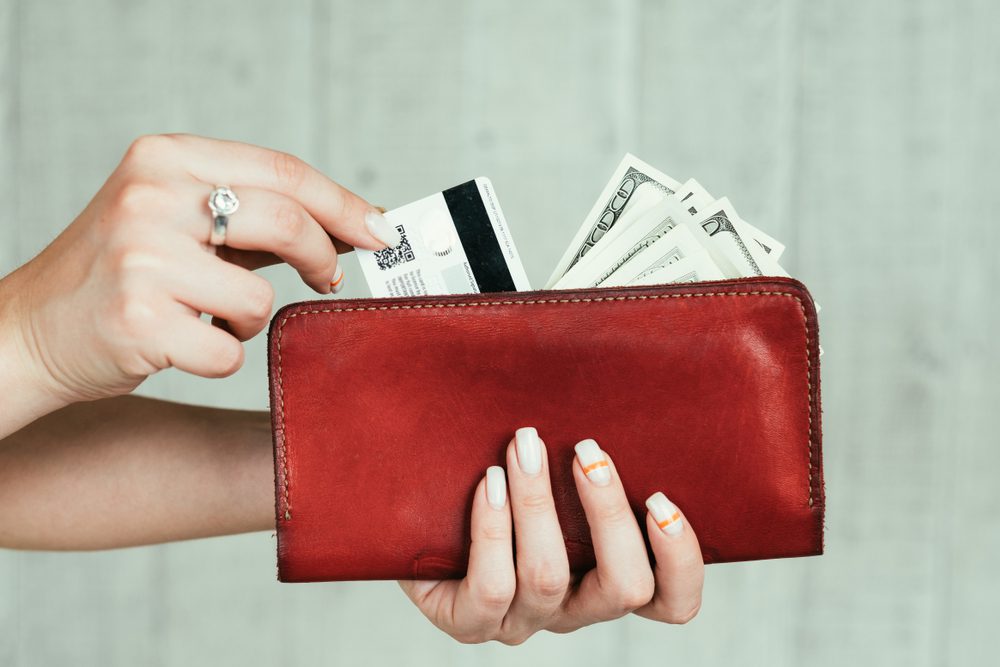
Most of us have experienced the scary feeling of searching for our wallet and not finding it. Whether it’s been lost, stolen, or simply misplaced, the panic cannot be put into words. But that’s exactly what you shouldn’t do. Instead of panicking, be proactive, and take the following measures to avoid major problems such as identity theft.
Call the police
The first thing you should do if you think your wallet was stolen is to call the police. In case the person who stole your wallet tries to use your documents in a fraudulent way, you’ll have supporting evidence that it wasn’t you.
“Someone is going to lose here, and it’s either the credit card company, bank, or you,” says Robert Siciliano, CSP, CEO of IDTheftSecurity.com. “If you say you’re a victim, you need to prove it.” The police report can be used as proof you’re telling the truth about false charges. Find out 9 Items Retirees Should Never Keep in Their Wallet.

Close your debit and credit cards
Most people keep their credit and debit cards in their wallets. To avoid being used by thieves, you should close any lost credit or debit accounts ASAP. The debit account is a priority because “the money is coming right out of your bank account, whereas credit is a credit card company’s money,” Siciliano says.
Time is money, so if you want to pay only $50 of fraudulent charges you need to make sure you report it within two business days, otherwise you could be liable for $500 or more. The reporting period for credit cards, on the other hand, is 60 days, but this doesn’t mean you shouldn’t go ahead and announce your credit card company sooner. Avoid also these 10 Money Mistakes You’re Making, According to Financial Experts.
Put up a fraud alert
If you want to put up a fraud alert, you need to call one of the three credit reporting companies (Equifax, Experian, and Trans Union). That way, when someone attempts to open a credit on your behalf, they will be required to follow certain steps to confirm their identity.
“The problem here is that if they have a hold of your license, they could take your information and put their picture on a faked license,” says Adam Levin, chairman and founder of identity protection service IDT911 and author of Swiped: How to Protect Yourself in a World Full of Scammers, Phishers, and Identity Thieves. Here are 9 Biggest Online Scams You Might Fall Victim To that experts also warn about.

Freeze your credit
Besides putting up a fraud alert, you also need to freeze your credit. Regardless of the situation, stolen wallet or not, a credit freeze will provide extra security and prevent thieves from opening any new accounts. “All a credit card company does is refund your account if there’s fraud,” Siciliano says. “They’re just forgiving the debt, not guarding your credit.”
The fee for every credit freeze and unfreeze is $10 and in case you’ve been a victim of identity theft, you no longer have to pay the fee.
Set up a monitoring program
When it comes to your losing your wallet with the Social Security number in it, the danger is twice as big, and you need to take immediate measures. “Once they have your social security number, they have that option on your life,” Levin says. “It’s not ‘if’ but ‘when.’”
If you have a special monitoring program, you will receive emails, text alerts, or phone notifications whenever you or someone else tries to apply for credit. More than that, such monitoring programs inform you just in time for you to take action before the damage is done.
“Your Medicare number is just your Social Security number with an extra letter, so keep that out of your wallet too, Levin says. To avoid being used by someone else, Levin recommends carrying a copy of the card and blacking out all but one or two numbers on the copy. Speaking of Medicare, here are 7 Unexpected Things Medicare Does Not Cover.
Monitor your accounts
Once you have closed your account, no one can use the card to make purchases. However, this does not mean you shouldn’t continue to keep an eye on the account, just to make sure everything is truly under control.
“Closely monitor before and after you lose your wallet,” Siciliano says. some banks or credit card companies alert you with regard to the account activity via email, text or app. If you don’t receive any of these alerts, or just to be on the safe side, check your statements constantly for any extra costs that the credit company might not consider unusual.
Modify your automatic payments
Whatever bills you usually paid automatically need to be updated in accordance with your new account number. “Make sure you don’t miss payments or get any surcharges,” Siciliano says. Keep track of your automatic payments and the cards you use for each one, so you don’t confuse things, he recommends. In terms of money and bills, see also Cut These 11 Unnecessary Expenses and Save Money During the Coronavirus Crisis.

Contact the DMV
Someone can easily steal your identity if they have information about your home address, full name, and birth date, as well as your driver’s license. That’s because “a driver’s license can be a very important piece of information in the authentication process,” Levin says. Therefore, contact your state’s department of motor vehicles for a new license and ask about any suspicious activity regarding your old card. Apart from driver’s license, leave these items out of your bag to avoid identity theft and more and pay attention to these Car Dealer Tricks Used at End-of-Year Sales.
Don’t hesitate to ask for help
If you become the victim of identity theft, you can ask institutions such as insurance agencies, financial services, and even the HR department at your work, to help you solve this unpleasant problem. “This is really the hidden benefit people don’t realize they have,” Levin says. “They’re more than happy to make it easy to contact them if you have a problem.” They can take over some of the burdening things you need to do in this stressful situation.
Don’t rule out the worst-case scenario
If your wallet is lost or stolen, whatever you do, don’t panic. But if you want to avoid any panic whatsoever, be proactive and take certain measures beforehand. First of all, take out any cards that you don’t use that much, such as store cards or medical cards. Secondly, keep a backup credit card at home so that you can use in case you need to close your accounts after a theft. Make copies of all the cards, documents and passwords in your wallet and put them in a safe place. You can either store them in a safe or on your computer. “It hurts a lot less when you can see the physical copy of those cards and don’t have to remember what you had in your wallet,” Siciliano says.

























